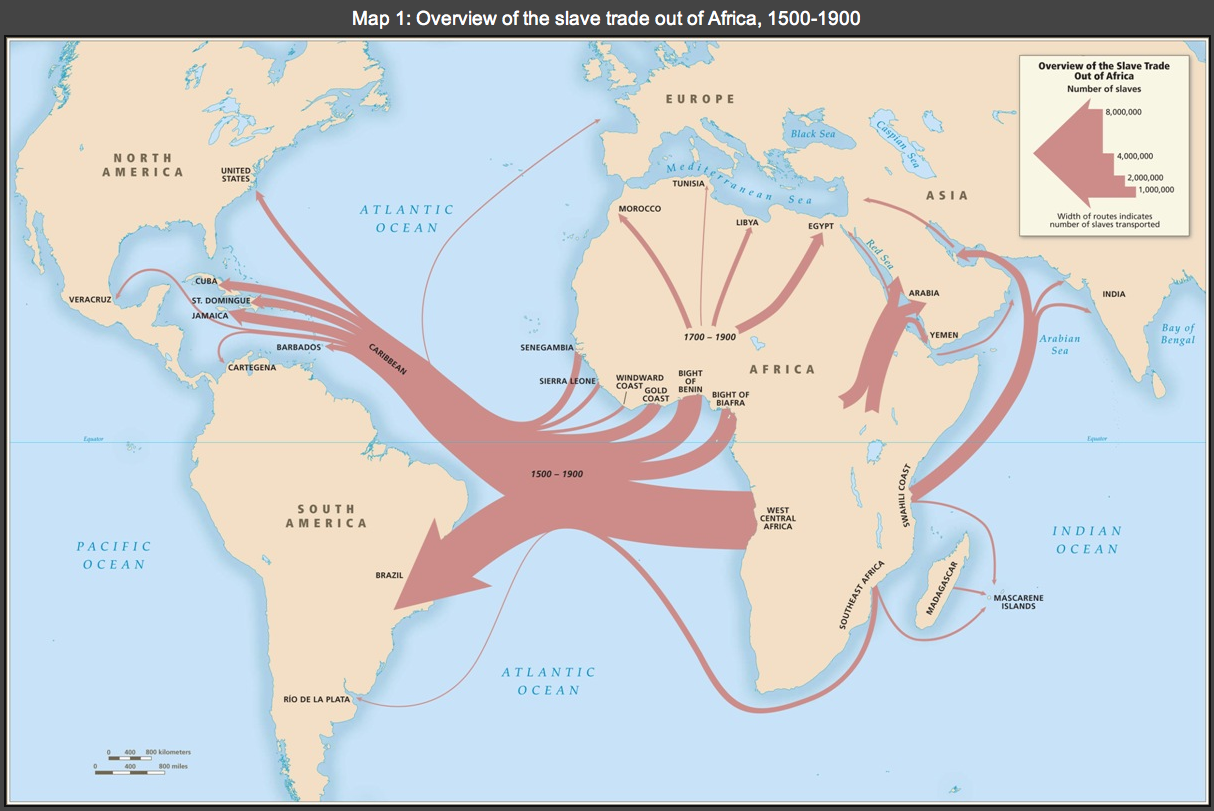

Afro-Caribbean Diaspora
Return to the full menu of María Magdalena Campos-Pons: Sea and Self interpretive materials
The term "Diaspora" has multiple meanings:
Any group migration or flight from a country or region
Any group that has been dispersed outside its traditional homeland, especially involuntarily (such as African people during the trans-Atlantic slave trade)
The spread or dissemination of something originally confined to a local, homogeneous group--such as a language, or a cultural institution
On this page you can explore the Afro-Caribbean Diaspora that Campos-Pons centers in her artwork, and in her identity.
Afro-Caribbean Traditions
Learn more about Afro-Caribbean Traditions on the Pluralism Project website, created by Harvard University.
Did you know that a professor recently co-designed the first AP Seminar on the African Diaspora offered at the University of Notre Dame?
“Globalizing all of our disciplines and inquiries in ways that include the continent and African Diaspora is a move we will all need to make in our courses,” states Ernest Morrell, professor of Africana studies and English, the Coyle Professor in Literacy Education and director of the Center for Literacy Education at the University of Notre Dame. Learn more on the University of Notre Dame website.

Yoruba Religion
Visit the Atlanta University Center Robert W. Woodruff Library Traditional African Religions: Yoruba website.
Learn about the Yoruba faith, a religion that is among the world’s tenth largest, with PBS Learning's Sacred Journeys with Bruce Feiler.
Yemayá is an ocean spirit in the Yoruba faith associated with the crescent moon, seashells, the iridescent blue of the peacock, and the protector of fishermen.
Read Hakai Magazine's article "The Goddess Who Moves Like the Waves."
Watch an Orisha Yemaya Dance from Cuba performed by Yusimi Moya Rodriguez, former dancer at the Conjunto Folklorico Nacional de Cuba:
Afro-Caribbean Music
Listen and look.
Select one artwork or walk through the gallery while listening to Songs From Life | A Programme for African Caribbean Elders created by Nubian Life and Serious.
Afro-Caribbean Food
“Caribbean cuisine historically has been thought of as very casual, from beachside shacks to local dives,” says St. Lucia-born Nina Compton of New Orleans’ Compere Lapin restaurant. “Now chefs are elevating the dining experience, but still offering the amazing fruits, vegetables, spices and seafood that have made African-Caribbean, and Caribbean cuisine in general, so flavorful and unique.” Learn more about the unique flavors of Afro-Caribbean, and Caribbean cuisine with US Food's article "The Isles Have it."
The Milwaukee area has a number of Cuban restaurants. Try one out!
Afro-Caribbean Books and Authors
Check out one of Goodread's "10 [Black] Female Caribbean Authors You Should Know."
Listen to Derek Walcott, a Saint Lucian poet and playwright, read his poem The Sea is History, written in 1977.
Read along here.

